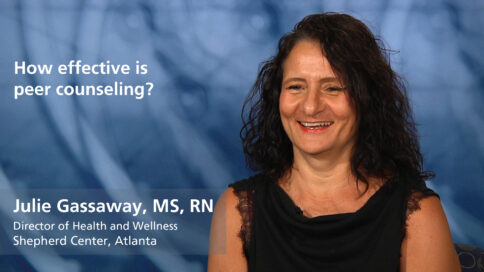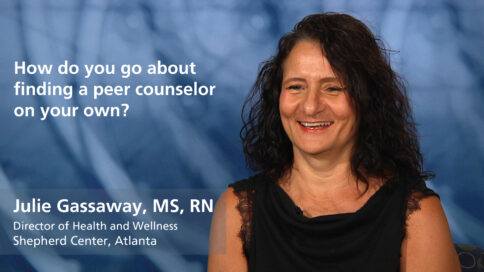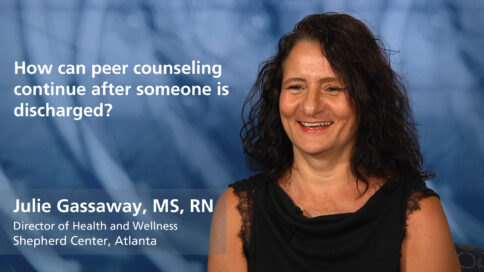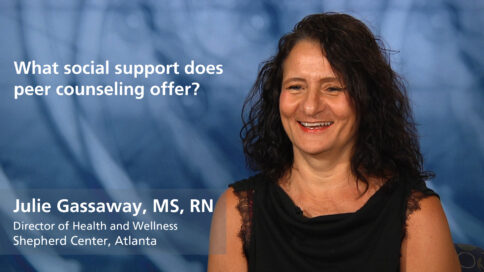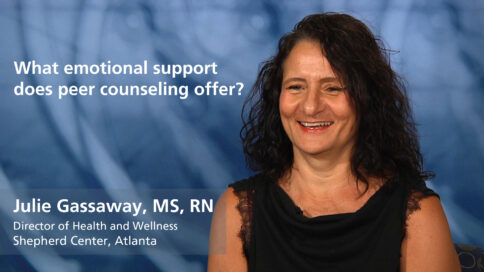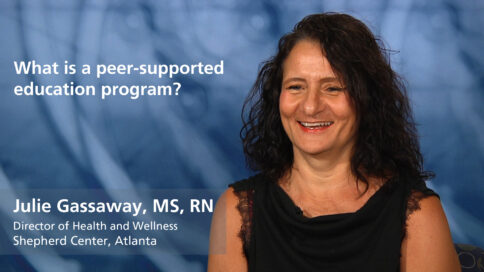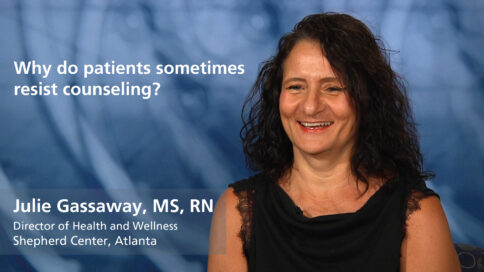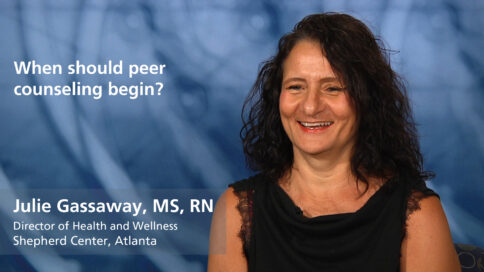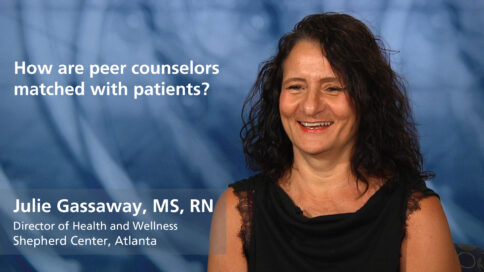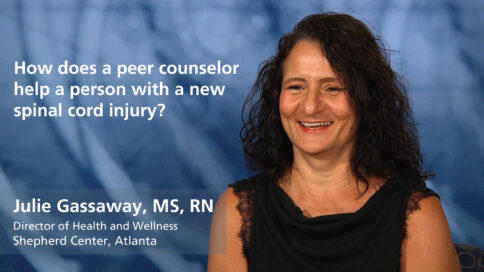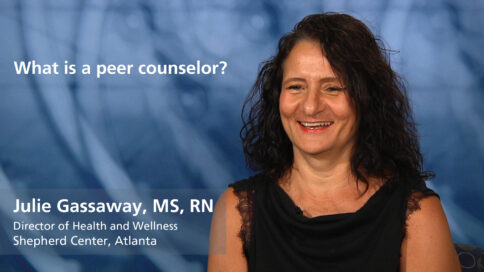What is a peer-supported education program? - Julie Gassaway, MS, RN
|
|
What is a peer-supported education program? |
|
Julie Gassaway, MS, RNDirector Health and Wellness, Shepherd Center, Atlanta |
||
| Read Bio | More Videos by Julie Gassaway | |
|
Share |
||
Transcript
Peer-supported education typically means that peers provide or help to provide formal education. For an example, here at Shepherd Center, our peers work with our nurse educators to not only lead educational classes, but also to develop the content, so that they can make sure that the content can be meaningful to their patients who are receiving the content. We think a very important component of peer-led education is that you as the patient figure out how to problem solve, and that it’s perhaps more important to be able to resolve issues than to understand all the basic physiology that went on behind your spinal cord injury. At some point you probably will want to know all about that, but that is the kind of thing you can read about. The things you need to learn about are how to solve problems, so that if something happens to you, you can move on—you resolve it and you keep on going. You keep living your life the way you want to live your life. Peer counseling also can help you identify issues that might arise early, so that you can start problem solving and resolving issues before they turn into something major that you might have to seek medical attention for. One of the issues that peers talk to our patients at Shepherd about, perhaps more than any other, is managing your bladder and preventing urinary tract infections. That is the number one reason that people tend to go back to the hospital. And, if you can pick up on very small indications that are early on, you can do simple things. Like very often if you drink a lot of water, much more than you are used to, you may start flushing out some of those problems before they turn into something so major that you do have to seek medical attention, and perhaps get antibiotics for or whatever. But just understanding early recognition signs of things such as a bladder infection is helpful. I think it is also helpful when peers can show you how they just weight shift within the course of everyday conversation. They never sit stationary without making sure they are taking care of their skin, and that is not telling you how to do that, it’s just you see it when they are doing it. You just see it and it is like “oh, that’s just normal, it’s not even anything that I have to worry about. I just do it and it is very natural.”
Show Less|
|
||
add
What is a peer-supported education program? |
||
Julie Gassaway, MS, RNDirector Health and Wellness, Shepherd Center, Atlanta |
More Videos by Julie Gassaway | |
| Transcriptadd | share | |
Peer-supported education typically means that peers provide or help to provide formal education. For an example, here at Shepherd Center, our peers work with our nurse educators to not only lead educational classes, but also to develop the content, so that they can make sure that the content can be meaningful to their patients who are receiving the content. We think a very important component of peer-led education is that you as the patient figure out how to problem solve, and that it’s perhaps more important to be able to resolve issues than to understand all the basic physiology that went on behind your spinal cord injury. At some point you probably will want to know all about that, but that is the kind of thing you can read about. The things you need to learn about are how to solve problems, so that if something happens to you, you can move on—you resolve it and you keep on going. You keep living your life the way you want to live your life. Peer counseling also can help you identify issues that might arise early, so that you can start problem solving and resolving issues before they turn into something major that you might have to seek medical attention for. One of the issues that peers talk to our patients at Shepherd about, perhaps more than any other, is managing your bladder and preventing urinary tract infections. That is the number one reason that people tend to go back to the hospital. And, if you can pick up on very small indications that are early on, you can do simple things. Like very often if you drink a lot of water, much more than you are used to, you may start flushing out some of those problems before they turn into something so major that you do have to seek medical attention, and perhaps get antibiotics for or whatever. But just understanding early recognition signs of things such as a bladder infection is helpful. I think it is also helpful when peers can show you how they just weight shift within the course of everyday conversation. They never sit stationary without making sure they are taking care of their skin, and that is not telling you how to do that, it’s just you see it when they are doing it. You just see it and it is like “oh, that’s just normal, it’s not even anything that I have to worry about. I just do it and it is very natural.”
